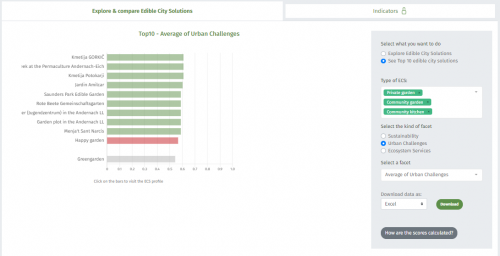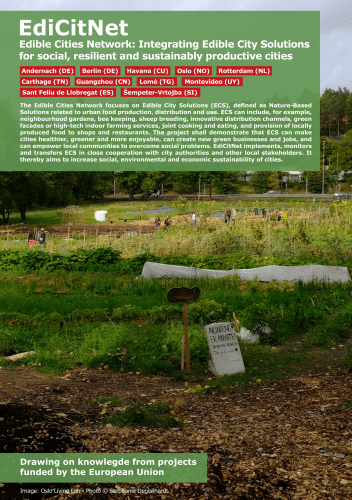Living Lab Neukölln Meeting
On June 25th the Living Lab Members of Prinzessinnengarten Kollektiv Berlin in Neukölln met to present and discuss the Edible Cities Solutions that were elaborated during the previous months.
ECS “Product Development”
In collaboration with the Berlin Living Lab Gutsgarten Hellersdorf the ECS aims to develop a product from locally grown ingredients with an independent brand that is to be developed. The focus here is on herbs from which tea and syrup are to be made. The herbs are grown, harvested (and processed) in the Living Lab Neukölln.
ECS “Cultural and Culinary Actions Days”
With this ECS, the numerous ideas and suggestions for including the intercultural neighborhood of the New St. Jacobi Cemetery are combined in a practical, flexible and easily accessible way. The chosen format are the action days, which are already well established on the grounds of the Jacobi cemetery. They take place during the season from March to November, once a month on Saturdays and are therefore well suited for neighborhood participation. Several activities can take place at the same time on a day of action, e.g. horticultural and craft activities or cultural and culinary activities.
ECS “Cemetery Conversion and Mourning Culture”
This ECS is intended to positively accompany and shape the fundamental and for some cemetery visitors certainly difficult change that is currently taking place on the cemetery area. Why are cemetery areas in Berlin closed? What does it mean when parts of a 150-year-old cemetery gradually become an urban garden? How can the uniqueness of the place be preserved? How much life and activity is actually conceivable in a cemetery? How can we go new ways together with those who grieve? Death and transience are omnipresent in a cemetery, but also in the vegetable patch and in the field. Can death and life be experienced as mutually dependent and complementary aspects? Can gardening with mourners be a way of gently coping with pain? From these and similar questions, the desire arises to deal more intensively with the topics of cemetery conversion and the culture of mourning within the framework of an ECS.
ECS “Research Center for Urban Environments”
This ECS deals with the possibilities of integrating neighborhood and research into an ecological and social cemetery conversion. This could be implemented in the form of an environmental education center on the topics of ecology and cemetery conversion.



